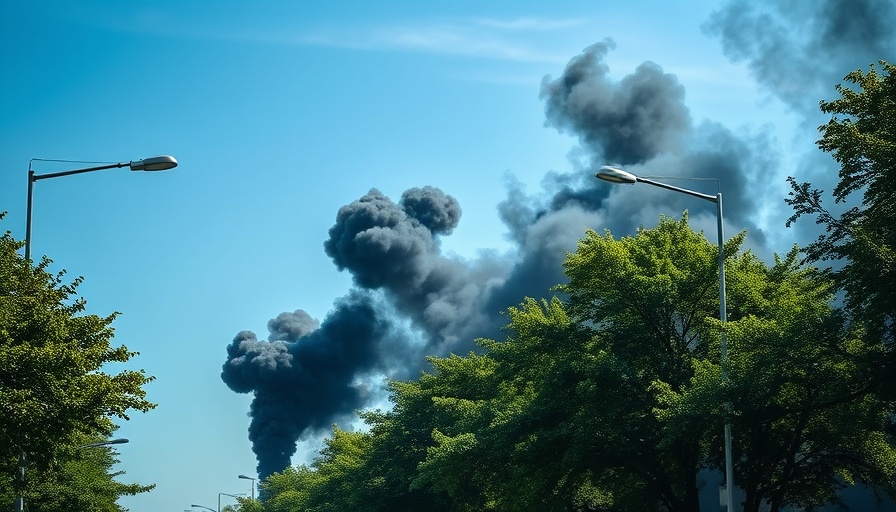
Israel Strikes Hamas Leadership: A New Phase in Middle Eastern Tensions
In a significant escalation of military engagements, Israel launched an unprecedented airstrike on Hamas leadership based in Qatar on September 9, 2025. This marked a major expansion of Israel's operations, which have primarily focused on the Gaza Strip, to include direct actions within Gulf Arab states. According to reports, the strikes targeted key Hamas figures, including Khalil al-Hayya, the group's exiled leader and chief negotiator in ongoing ceasefire discussions.
Escalating Tensions: The Wider Implications
The attack quickly attracted global condemnation, particularly from Qatar, which has long served as a mediator in the Israeli-Palestinian conflict. Qatar's government described Israel's actions as ‘cowardly’ and a direct violation of international law. These sentiments were echoed across the Gulf, with Saudi Arabia denouncing what it termed ‘brutal Israeli aggression’ against a sovereign nation. This growing tide of regional backlash indicates a serious deterioration in Israel's diplomatic relations with neighboring Arab states, particularly following prior normalization agreements under the Abraham Accords.
The Ceasefire Negotiation Landscape
This airstrike comes at a critical juncture in ceasefire negotiations, which had been taking place in Qatar following nearly two years of violent conflict in Gaza. The incident is likely to undermine ongoing diplomatic efforts, as Hamas leaders, who survived the strike, had been engaged in dialogue aimed at reaching an agreement with Israel. Their survival might also suggest that their operational capacities remain intact despite the ongoing Israeli military actions in Gaza.
Israel's Strategic Calculations
Israeli officials justified the strikes as essential actions against what they perceive as threats in the region, particularly following a recent attack in Jerusalem by Hamas militants that resulted in multiple casualties. However, such military actions raise critical questions about the effectiveness of targeting leadership as a means of undermining an organization's capabilities. Historically, similar operations have produced varied outcomes, with leadership loss often leading to more radicalized successors taking the helm.
Analyzing International Perspectives
Various international actors, including the United Nations, are likely to closely monitor developments. The airstrike could lead to renewed calls for accountability regarding violations of international law—a sentiment strongly expressed by human rights organizations in the wake of escalated hostilities in Gaza.
Moreover, the region's response could illuminate the shifting power dynamics among Arab nations regarding their relations with Israel. As diplomatic ties are continually tested, one must consider how countries like the UAE and Saudi Arabia will recalibrate their responses to Israeli actions, particularly against fellow Arab states.
Implications for the Civilian Population
In Gaza City, the situation remains dire as evacuation orders amplify the panic of residents who are already facing immense hardships. Displaced populations, particularly vulnerable groups such as cancer patients, await the full brunt of Israeli military operations amidst fears for their safety and survival. Increasing numbers of civilians caught in the crossfire of conflict raises urgent humanitarian concerns as international aid organizations prepare for further fallout from this military escalation.
Future Trends: Can Peace Be Achieved?
As the situation continues to evolve, the prospect for peace remains bleak. Military strategies focusing on leadership elimination may not effectively result in long-term stability or peace. Instead, real change may require diplomatic engagement and regional cooperation. The ongoing fallout from this incident could dictate the future trajectory of peace talks and the broader conflict.
The developments from Israel’s strikes against Hamas leadership not only reshape the immediate landscape of the ongoing conflict but also hint at broader geopolitical implications involving regional players and international stakeholders. As nations assess these dynamics, the pathways to peace and security in the region remain as complex as ever.
 Add Row
Add Row  Add
Add 




Write A Comment